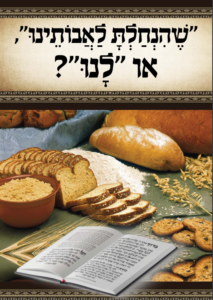By Walter E. Block
July 5, 2017
In 2012 I published this book:
Block, Walter E. 2012. Yes to Ron Paul and Liberty. New York: Ishi Press;
It was, in effect my love letter to Ron Paul, who, of course, I revere. As is usual in publications of this sort, I searched around for people to write a forward to the book. As is typical on occasions of this sort, my first thought was to ask a famous person to make this contribution. I wanted to maximize the publicity for this book. I was thinking of the usual suspects: Ron Paul himself, Lew Rockwell, Andrew Napolitano, Hans Hoppe, Tom Woods, Tom DiLorenzo, and other such leaders of our movement. I rejected them all. Instead, I chose an essay on Ron Paul written by this then 20 something year old kid, Rafi Farber. In my view, this is the single best essay ever written about Ron Paul, by anyone. Anyone. No exceptions. It is brilliant. It is magnificent. You can read it right here; you need not purchase this book. I don’t say it does full justice to Ron Paul; no human being can do so. But, Rafi’s effort comes closer than any other essay I have ever read about Dr. Paul. Read it now. It will bring tears to your eyes, as it does to me every time I read it, and I have read it on dozens of occasions.
Rafi then and now, is an Israeli citizen. He is now in his early 30s, and is running as an open and avowed libertarian for the Israeli parliament, the Knesset. A staunch Rothbardian, he favors full free enterprise for that country, an end to all U.S. foreign “aid” to Israel, and a host of other libertarian planks. Due to arcane voting laws, all Jews, citizens of any country, are eligible to vote for him (don’t ask, but read below).
So, I humbly ask all Jewish libertarians to vote for him. I would greatly appreciate your support on this. I will be in your debt if you help elect him. In my considered opinion, the entire libertarian movement will benefit from having a young, articulate, passionate Rothbardian in the Knesset. Please help my friend and already several times co-author Rafi Farber attain this goal.
Here is a video that explains this situation in more detail. Here is the crowdfund campaign page.
Please vote a Libertarian into Israel’s Parliament.
There is a new libertarian minarchist political party in Israel called Zehut (Identity), polling at 12-15 seats out of a total 120 seats in Israel’s parliament, the Knesset. Rafi Farber, anarcho-libertarian and author of an LRC article Vote Ron Paul and Let My People Go, is running for slot #10 on Zehut’s list.
Here’s where it gets interesting though. Any Jewish person in the world is eligible to vote for Farber in the Zehut party primaries on September 12.
How, you ask? Zehut is reserving slot #10 for voting by international members only, and any Jewish person in the world can become an international member of the party. To do so, go to Farber’s campaign page and pledge your support. Voting membership is limited to Jewish people, loosely defined, so please only pledge support if you are Jewish. (Honors system!) For questions about what “Jewish” means in this context, please email Rafi directly at farber4knesset@gmail.com
You will not be charged a dime until and unless he reaches 250 voting supporters, which will ensure his victory in the primaries.
His platform includes
1) Ending all foreign government aid to Israel,
2) Ending all Israeli military occupation,
3) Legalizing gold silver and bitcoin as legal tender
4) In general, he will vote against any law that expands the size of the Israeli state, and vote for any law that shrinks it.
As a bonus, he will not take any state salary if he wins, but instead will donate half of it to the Mises Institute, and half to libertarian causes in Israel, every month.
If you’ve ever wanted to vote an anarcho-libertarian into Israel’s parliament, this is your chance to do it.
From Lewrockwell.com, here.

